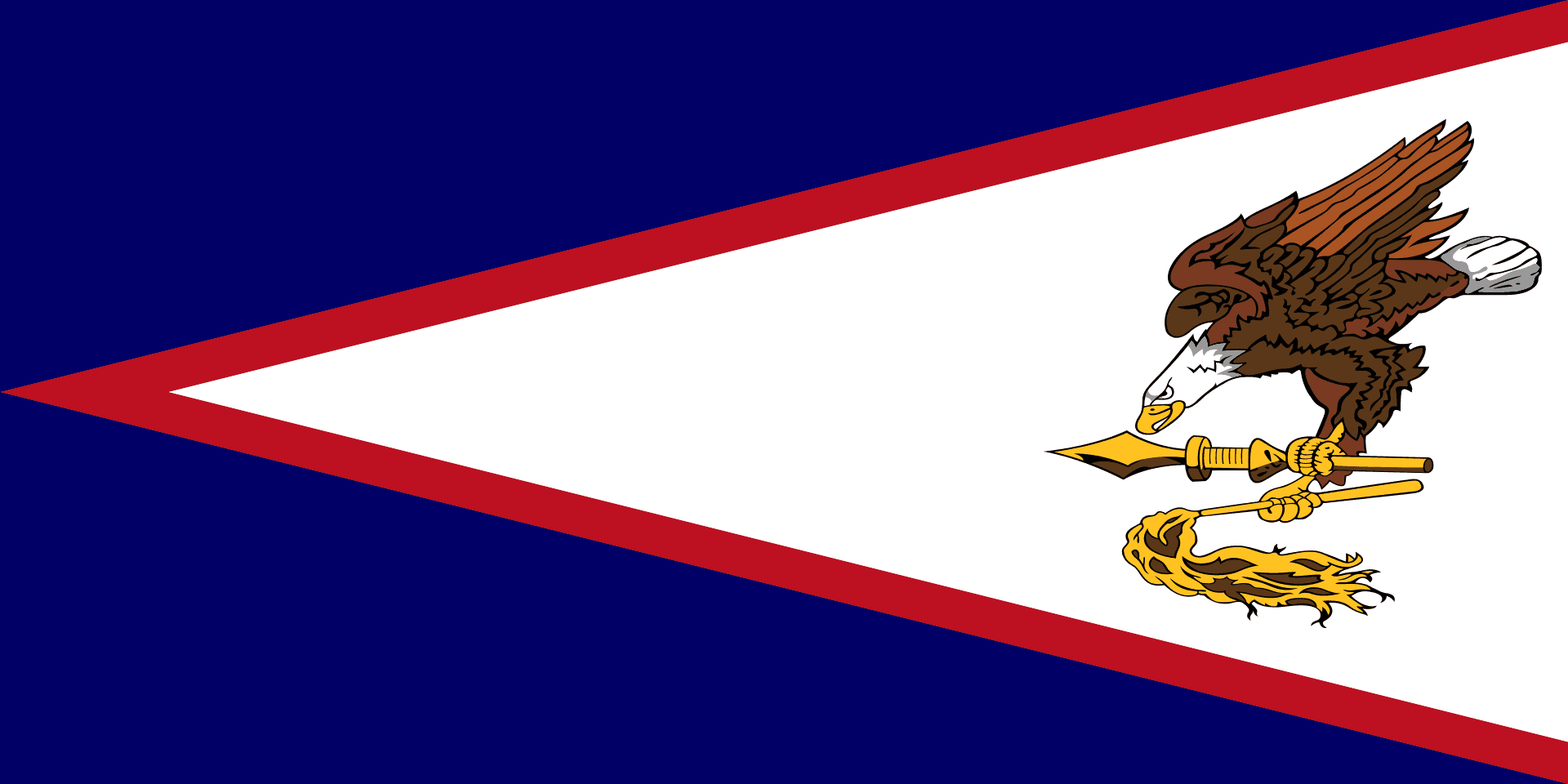Introduction
Background
Settled as early as 1000 B.C., Samoa was not reached by European explorers until the 18th century. International rivalries in the latter half of the 19th century were settled by an 1899 treaty in which Germany and the US divided the Samoan archipelago. The US formally occupied its portion - a smaller group of eastern islands with the excellent harbor of Pago Pago - the following year.
Geography
Area
total : 224 sq km
land: 224 sq km
water: 0 sq km
Climate
tropical marine, moderated by southeast trade winds; annual rainfall averages about 3 m; rainy season (November to April), dry season (May to October); little seasonal temperature variation
Natural resources
pumice, pumicite
People and Society
Population
total: 43,895
Ethnic groups
Pacific Islander 88.7% (includes Samoan 83.2%, Tongan 2.2%, other 3.3%), Asian 5.8% (includes Filipino 3.4%, other 2.4%), mixed 4.4%, other 1.1% (2020 est.)
Languages
Samoan 87.9% (closely related to Hawaiian and other Polynesian languages), English 3.3%, Tongan 2.1%, other Pacific Islander 4.1%, Asian languages 2.1%, other 0.5% (2020 est.)
Religions
Christian 98.3%, other <1%, unaffiliated <1% (2020 est.)
Population growth rate
-1.54% (2024 est.)
Government
Government type
unincorporated, unorganized Territory of the US with local self-government; republican form of territorial government with separate executive, legislative, and judicial branches
Capital
name: Pago Pago
Executive branch
chief of state: President Joseph R. BIDEN Jr. (since 20 January 2021)
head of government: Governor Lemanu Peleti MAUGA (since 3 January 2021)
Legislative branch
summary: bicameral Legislature consists of the Senate (18 seats) and the House of Representatives (21 seats)
Economy
Economic overview
tourism, tuna, and government services-based territorial economy; sustained economic decline; vulnerable tuna canning industry; large territorial government presence; minimum wage increases to rise to federal standards by 2036
Real GDP (purchasing power parity)
$658 million (2016 est.)
$674.9 million (2015 est.)
$666.9 billion (2014 est.)
Real GDP per capita
$11,200 (2016 est.)
$11,300 (2015 est.)
$11,200 (2014 est.)
Exports
$409 million (2022 est.)
$332 million (2021 est.)
$427 million (2020 est.)
Exports - partners
Australia 33%, South Korea 16%, Taiwan 8%, Kuwait 8%, Senegal 5% (2022)
Exports - commodities
animal meal, packaged medicine, machinery, refined petroleum, insulated wire (2022)
Imports
$677 million (2022 est.)
$694 million (2021 est.)
$686 million (2020 est.)
Imports - partners
Malaysia 27%, Singapore 24%, Fiji 12%, South Korea 9%, Taiwan 9% (2022)
Imports - commodities
refined petroleum, fish, cars, paper containers, wood (2022)
Page last updated: Tuesday, September 03, 2024




